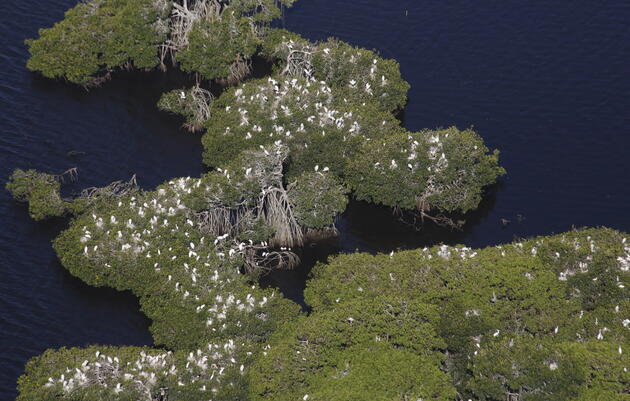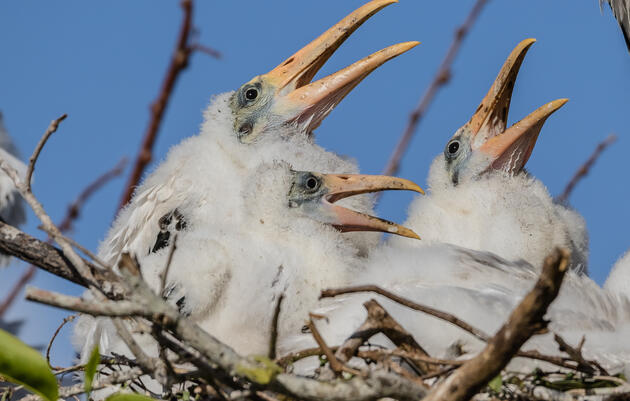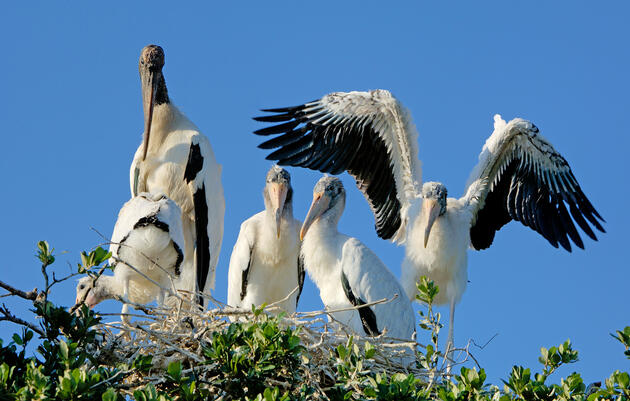Audubon Florida is concerned by the U.S. Fish and Wildlife Service's imminent proposal to remove the Wood Stork from Endangered Species Act protection.
The Greater Everglades Ecosystem used to be this species’ heartland, supporting massive colonies of this iconic wading bird. Today, the region’s megacolonies are a distant memory and in many seasons, chicks starve in their nests for lack of food due to loss and degradation of wetland habitat. While storks have recently spread northward, it’s unclear whether these outposts can survive long-term, especially with the loss of habitat protections that would accompany delisting and the uncertainties posed by climate change.
With the release of today’s species assessment, we look forward to vetting the findings cited in this proposal and providing additional resources that document the significance and vulnerability of this species in the Greater Everglades Ecosystem. South Florida’s Wood Storks were the anchor of the U.S. population for a very long time, and could be crucial to the species if the gains of recent years prove short-lived. While we celebrate many delistings, we have grave concerns for the future of the Wood Stork, especially if it is left without the protections afforded under the Endangered Species Act.








